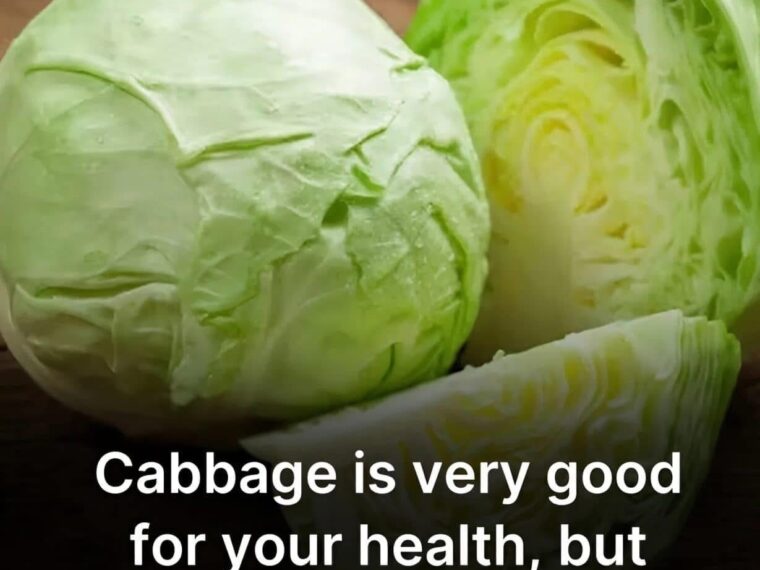💊 3. People Taking Blood Thinners (e.g., Warfarin)
Cabbage is very high in vitamin K, which plays a key role in blood clotting. While this is beneficial for most people, those taking anticoagulant medications like warfarin must maintain consistent vitamin K intake to prevent fluctuations in clotting time.
📚 Scientific support:
- According to the American Heart Association, sudden increases in vitamin K (through cabbage or leafy greens) can interfere with the effectiveness of blood-thinning drugs, leading to dangerous clotting or bleeding risks.
⚠️ Advice: Individuals on blood thinners should not avoid vitamin K entirely, but must avoid sudden changes in consumption and consult their doctor before altering their diet.
🧪 4. People Prone to Kidney Stones (Especially Oxalate Stones)
Though cabbage is not the highest in oxalates (compared to spinach or rhubarb), red cabbage and some varieties contain moderate oxalate levels, which can contribute to calcium oxalate kidney stones in susceptible individuals.
🔍 Research insight:
- A study in the Clinical Journal of the American Society of Nephrology (2015) found that diets high in oxalate can increase the risk of kidney stones in genetically predisposed people or those with chronic kidney conditions.
⚠️ Advice: If you have a history of oxalate kidney stones, moderate your intake of cabbage — especially red or purple varieties — and drink plenty of water.
✅ Final Thoughts: Cabbage Is Healthy — But Not for Everyone
| 🚫 Avoid/Limit Cabbage If You… | 🩺 Why |
|---|---|
| Have hypothyroidism | Goitrogens interfere with iodine and thyroid hormones |
| Suffer from IBS or bloating | High in FODMAPs and fiber, triggers gas and cramps |
| Take blood thinners | Very high in vitamin K, may affect medication |
| Have kidney stone risk | Contains moderate oxalate levels |
🧠 Bonus Tip: When in Doubt — Cook It!
Many of cabbage’s problematic compounds (goitrogens, FODMAPs, etc.) are significantly reduced through cooking. Steaming, boiling, or fermenting cabbage can make it easier to digest and safer for people in these risk groups — though it’s still best to consult a healthcare provider.
📌 Conclusion
Cabbage is a nutrient-dense vegetable with countless health benefits — but like all foods, it’s not universally beneficial. For people with thyroid problems, digestive disorders, certain medications, or kidney conditions, moderation or caution is key.
Listening to your body, consulting a medical professional, and adjusting how you prepare cabbage can help you enjoy its benefits without risking your health.




